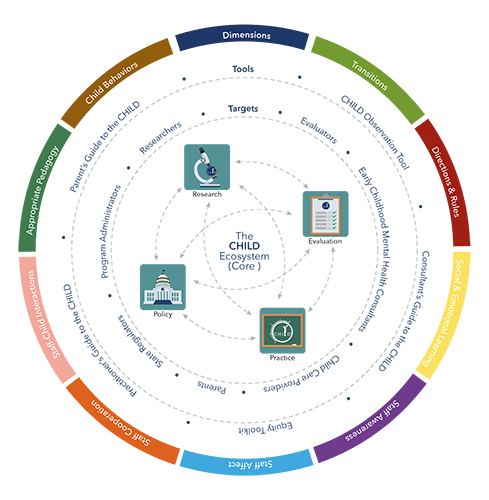
The CHILD Ecosystem
Research
The CHILD Observation Tool is a measurement tool that assesses the quality of the social and emotional climate in early childhood care and education settings (e.g., preschool, daycare). As a measurement tool, the CHILD can be used for research, such as examining how the social and emotional climate is associated with child outcomes.
Evaluation
The CHILD Observation Tool is a measurement tool that assesses the quality of the social and emotional climate in early childhood care and education settings (e.g., preschool, daycare). As a measurement too, the CHILD can be used for program evaluation, such as assessing the effectiveness of early childhood mental health consultation services or a social-emotional learning program.
Practice
The CHILD toolkit includes a practitioner-oriented tool designed to strengthen the work of early childhood care and education professionals and the systems that support them. The Practitioner’s Guide to the CHILD offers implementable strategies that map onto the nine CHILD dimensions, and reflective exercises designed to strengthen teacher-child, teacher-teacher, and child-child interactions. The Consultant’s Guide to the CHILD is designed to support the work of early childhood mental health consultants and other professionals providing support to teachers (e.g., instructional coaches). It may also be used by center directors as a way of providing feedback to their staff and promoting ongoing professional development. The Equity Tool is an accompaniment to the Consultant’s Guide to the CHILD. It is designed to assist early childhood mental health consultants in promoting equity in the classroom using the lens of the CHILD.
Policy
Ultimately, the CHILD aims to provide policymakers with evidence to inform social policies around early care and education programs and services. The State Regulators Guide, currently under development, provides state regulators with a rapid assessment of quality of the mental health climate.

